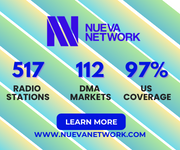Coca-Cola New Education Advisory Council.
February 20, 2001
Setting the stage for the development of a new public/private partnership between beverage companies and school districts, The Coca-Cola Company announced a new approach to supporting education — including an Education Advisory Council — that redefines and enhances the Company’s commitment to students and educators and brings a series of improvements to its 50-year relationship with the nation’s schools.
At the top of the list: The Coca-Cola Company supports adoption of non-exclusive agreements with schools. The Coca-Cola system will continue to return revenue from beverage sales to support educational programs, without requiring exclusivity.
“One of our guiding principles has always been to listen to educators, and we want teachers, parents and everyone concerned about commercialism and nutrition issues in our schools to know that we’re committed to responding effectively to their wishes and needs,” said Jeffrey Dunn, President of Coca-Cola Americas. “We’re advocating public/private partnerships that give educators more time to focus on what they do best – educating our kids – by making these partnerships as simple and productive as possible.”
Additional elements of the new approach include:
Providing students access to a wide array of beverages, including juices, water, sugar-free, caffeine-free and vitamin and calcium-rich products, in school vending machines. The beverage choices will be based on the discretion of local school and school districts.
Working with schools to comply with all federal, state and local guidelines, Coca-Cola bottlers will unconditionally honor the wishes of all schools that seek to limit the sale of beverages at certain points of the school day, or at certain locations on school campuses. These decisions will be based on the desires of school officials and communities that create public/private partnerships with Coca-Cola.
Placing non-commercial signage on school-vending machines. In the first phase this includes machines with non-commercial graphics featuring student and/or fitness-oriented activities. The Company is also exploring the potential of using glass-front vending machines to make available a wide variety of products, including calcium-rich products.
“The classroom is a clean zone – and we’ve always been committed to promoting a learning environment that does not become commercialized,” said Dunn. “Now we’re prepared to take this commitment a step further, reducing our commercial presence in other areas of the school environment as well.”
Announced at a meeting with several of the nation’s education organizations, the new approach will be guided by an Education Advisory Council comprised of leaders in the worlds of education, business, public policy, nutrition and other areas. A key role of the Council will be to study and promote a series of Best Practices in Public/Private Partnerships that respond to the needs of educators and students. Among those serving on the Advisory Council are former U.S. Secretary of Education Richard Riley and National Association for Sport and Physical Education Executive Director Judith Young.
“The changes announced today by The Coca-Cola Company indicate true leadership in the continued dialogue regarding effective public/private partnerships,” said National Association of Secondary School Principals Executive Director Gerald Tirozzi.
While the Company maintains that local schools and communities should determine how funds are used, Coca-Cola and its bottling system will continue their longstanding policy of encouraging school partners to use these resources for programs such as the following:
Academic enrichment
Technology
Extra-curricular activities
Educator and student reward & recognition efforts
Physical fitness and education programs
While the primary purpose behind the Company’s new approach is to respond appropriately to concerns about commercialism and nutrition, Coca-Cola also feels that the initiative will be beneficial to its continuing relationship with educators, and the long-term viability of its beverage program in schools. In addition to the Education Advisory Council, programs that are a part of the initiative will include scholarships for students to attend National Leadership Camps, in partnership with the National Association of Secondary School Principals, as well as a number of efforts related to issues such as drop-out prevention, student achievement, reading and physical fitness. Coca-Cola will also be sponsoring the PBS series “American High.” For more information about The Coca-Cola Company’s education programs, and further details about the Company’s guidelines on commercialism and nutrition, go to “news releases” at www.coca-cola.com.
“For decades we’ve worked hard to be a good partner with schools, and we want teachers, parents and everyone concerned about commercialism and nutrition issues to know that we’re committed to responding effectively to their wishes and needs,” said Dunn. “Yes, some of these changes are a departure from existing practices, and yes, they will take some time, but given the significant benefits to schools across the nation we’re committed to carrying them through.”






























